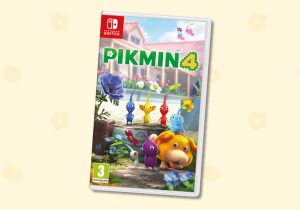
Robert Burns Primary Resource
Meet the famous poet behind the super celebration – Burns’ Night
This primary resource introduces children to the famous Scottish poet Robert Burns and the tradition of Burns’ Night. When was Robert Burns born? What year did ‘Burns’ Night’ begin? How is Burns’ Night celebrated?
Pupils will discover how and why Robert Burns’ birthday has become a cultural event celebrated around the globe in our National Geographic Kids’ Robert Burns primary resource sheet.
The teaching resource can be used in study group tasks for discussing Burns’ Night and other traditional events and celebrations around the world. It can be used as a printed handout for each pupil to review and annotate, or for display on the interactive whiteboard using the images included in the resource for class discussion.
Activity: Read and discuss a selection of Robert Burn’s poems with the class, such as Auld Lang Syne, To a Mouse, Address to a Haggis, Tam O’Shanter. Children could also write their own poems; perhaps based on a theme or topic from their favorite Burns’ poem. Pupils could read out their work to the class to gain confidence and build presentation skills.
N.B. The following information for mapping the resource documents to the school curriculum is specifically tailored to the English National Curriculum and Scottish Curriculum for Excellence. We are currently working to bring specifically tailored curriculum resource links for our other territories; including South Africa, Australia and New Zealand. If you have any queries about our upcoming curriculum resource links, please email: schools@ngkids.co.uk
This Robert Burns primary resource assists with teaching the following English objectives from the National Curriculum:
The national curriculum for English aims to ensure that all pupils:
- read easily, fluently and with good understanding
- develop the habit of reading widely and often, for both pleasure and information
- appreciate our rich and varied literary heritage
- write clearly, accurately and coherently, adapting their language and style in and for a range of contexts, purposes and audiences
- use discussion in order to learn; they should be able to elaborate and explain clearly their understanding and ideas
- are competent in the arts of speaking and listening, making formal presentations, demonstrating to others and participating in debate
National Curriculum Key Stage 1 English objectives – Year 1
Peoples should be taught to develop pleasure in reading, motivation to read, vocabulary and understanding by:
- listening to and discussing a wide range of poems, stories and non-fiction at a level beyond that at which they can read independently
- learning to appreciate rhymes and poems, and to recite some by heart
National Curriculum Key Stage 1 English objectives – Year 2
Pupils should taught to develop pleasure in reading, motivation to read, vocabulary and understanding by:
- listening to, discussing and expressing views about a wide range of contemporary and classic poetry, stories and non-fiction at a level beyond that which they can read independently
- recognising simple recurring literary language in stories and poetry
Pupils should be taught to develop positive attitudes towards and stamina for writing by:
- Writing poetry
- Writing narratives about personal experiences and those of others
Pupils should be taught to read aloud what they have written with appropriate intonation to make the meaning clear
National Curriculum Lower Key Stage 2 English objectives
Pupils should be taught to develop positive attitudes to reading and understanding of what they read by:
- listening to and discussing a wide range of fiction, poetry, plays, non-fiction and reference books or textbooks
- preparing poems and play scripts to read aloud and to perform, showing understanding through intonation, tone, volume and action
- recognising some different forms of poetry [for example, free verse, narrative poetry]
Pupils should be taught to read aloud their own writing, to a group or the whole class, using appropriate intonation and controlling the tone and volume so that the meaning is clear
National Curriculum Upper Key Stage 2 English objectives
Pupils should be taught to maintain positive attitudes to reading and understanding of what they read by:
- continuing to read and discuss an increasingly wide range of fiction, poetry, plays, non-fiction and reference books or textbooks
- identifying and discussing themes and conventions in and across a wide range of writing
- preparing poems and plays to read aloud and to perform, showing understanding through intonation, tone and volume so that the meaning is clear to an audience
Pupils should be taught to discuss and evaluate how authors use language, including figurative language, considering the impact on the reader
Pupils should be taught to perform their own compositions, using appropriate intonation, volume, and movement so that meaning is clear
This Robert Burns primary resource assists with teaching the following Key Stage 1 History objectives from the National Curriculum:
Pupils should be taught about:
- Events beyond living memory that are significant nationally or globally [for example,events commemorated through festivals or anniversaries]
- The lives of significant individuals in the past who have contributed to national and international achievements
This Robert Burns primary resource assists with teaching the following Social Studies First level objective from the Scottish Curriculum for Excellence:
- Having selected a significant individual from the past, I can contribute to a discussion on the influence of their actions, then and since
Scottish Curriculum for Excellence Second level Social Studies objective:
- I can investigate a Scottish historical theme to discover how past events or the actions of individuals or groups have shaped Scottish society
- I can discuss why people and events from a particular time in the past were important, placing them within a historical sequence
Scottish Curriculum for Excellence Third level Social Studies objective:
- I can make links between my current and previous studies, and show my understanding of how people and events have contributed to the development of the Scottish nation
This Robert Burns primary resource assists with teaching the following English and Literacy Early level objective from the Scottish Curriculum for Excellence:
- I enjoy exploring and choosing stories and other texts to watch, read or listen to, and can share my likes and dislikes
- I enjoy exploring events and characters in stories and other texts, sharing my thoughts in different ways
- I explore sounds, letters and words, discovering how they work together, and I can use what I learn to help me as I read and write
- I enjoy exploring and playing with the patterns and sounds of language and can use what I learn
- I explore sounds, letters and words, discovering how they work together, and I can use what I learn to help me as I read or write
- I enjoy exploring events and characters in stories and other texts and I use what I learn to invent my own, sharing these with others in imaginative ways
- I can present my writing in a way that will make it legible and attractive for my reader, combining words, images and other features
Scottish Curriculum for Excellence First level English and Literacy objectives:
- I can use my knowledge of sight vocabulary, phonics, context clues, punctuation and grammar to read with understanding and expression
- To show my understanding across different areas of learning, I can identify and consider the purpose and main ideas of a text
- I can share my thoughts about structure, characters and/or setting, recognise the writer’s message and relate it to my own experiences, and comment on the effective choice of words and other features
- By considering the type of text I am creating,6 I can select ideas and relevant information, organise these in a logical sequence and use words which will be interesting and/or useful for others
- Having explored the elements which writers use in different genres, I can use what I learn to create my own stories, poems and plays with interesting structures, characters and/or settings
Scottish Curriculum for Excellence Second level English and Literacy objectives:
- Through developing my knowledge of context clues, punctuation, grammar and layout, I can read unfamiliar texts with increasing fluency, understanding and expression
- I can: discuss structure, characterisation and/or setting; recognise the relevance of the writer’s theme and how this relates to my own and others’ experiences; discuss the writer’s style and other features appropriate to genre
- I enjoy creating texts of my choice and I regularly select subject, purpose, format and resources to suit the needs of my audience.
- By considering the type of text I am creating, I can select ideas and relevant information, organise these in an appropriate way for my purpose and use suitable vocabulary for my audience
- I am learning to use language and style in a way which engages and/or influences my reader
- As I write for different purposes and readers, I can describe and share my experiences, expressing what they made me think about and how they made me feel
- Having explored the elements which writers use in different genres, I can use what I learn to create stories, poems and plays with an interesting and appropriate structure, interesting characters and/or settings which come to life
Scottish Curriculum for Excellence Third level English and Literacy objectives:
- I regularly select and read, listen to or watch texts for enjoyment and interest, and I can express how well they meet my needs and expectations and give reasons, with evidence, for my personal response. I can identify sources5 to develop the range of my reading
- I can identify and comment on aspects of the writer’s style and other features appropriate to genre using some relevant evidence
- I enjoy creating texts of my choice and I am developing my own style. I can regularly select subject, purpose, format and resources to suit the needs of my audience
- As appropriate to my purpose and type of text, I can punctuate and structure different types of sentences with sufficient accuracy, and arrange these to make meaning clear, showing straightforward relationships between paragraphs
- Throughout the writing process, I can review and edit my writing to ensure that it meets its purpose and communicates meaning at first reading
- I can consider the impact that layout and presentation will have on my reader, selecting and using a variety of features appropriate to purpose and audience
- I can engage and/or influence readers through my use of language, style and tone as appropriate to genre
- I can convey information, describe events, explain processes or concepts, and combine ideas in different ways
- Having explored the elements which writers use, I can create texts in different genres by: integrating the conventions of my chosen genre successfully and/or using convincing and appropriate structures and/or creating interesting and convincing characters and/or building convincing settings which come to life
Scottish Curriculum for Excellence Fourth level English and Literacy objectives:
- I can identify how the writer’s main theme or central concerns are revealed and can recognise how they relate to my own and others’ experiences
- I can identify and make a personal evaluation of the effect of aspects of the writer’s style and other features appropriate to genre using some relevant evidence and terminology
- Having explored and experimented with the narrative structures which writers use to create texts in different genres, I can: use the conventions of my chosen genre successfully and/or create an appropriate mood or atmosphere and/or create convincing relationships, actions and dialogue for my characters
Download primary resource
More Like

Bananagrams

10 facts about
flying ants!

Azerbaijan facts!









LEAVE A COMMENT
THANK YOU
Your comment will be checked and approved shortly.
WELL DONE,
YOUR COMMENT
HAS BEEN ADDED!
COMMENTS
CUSTOMIZE YOUR AVATAR